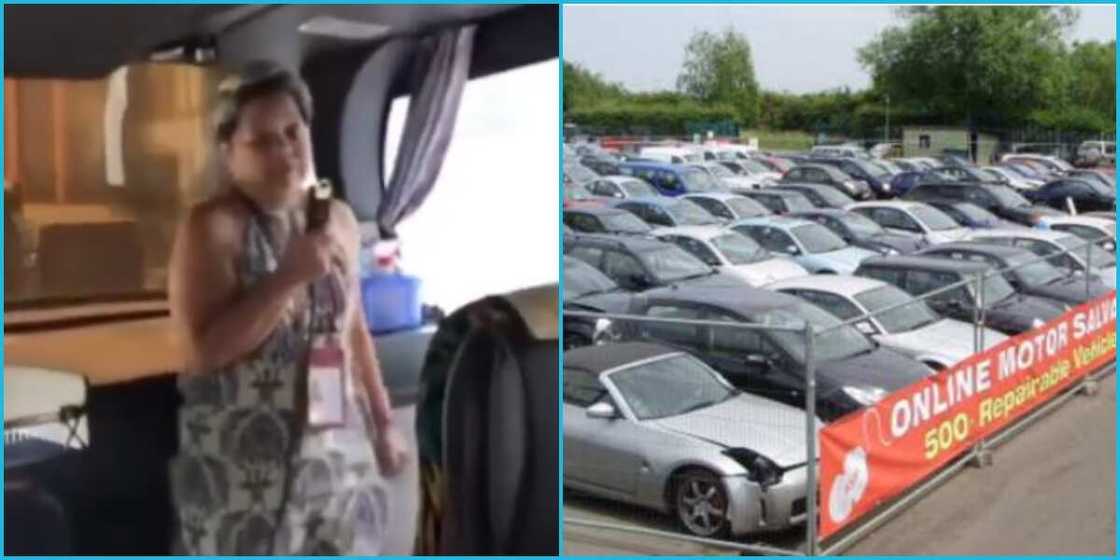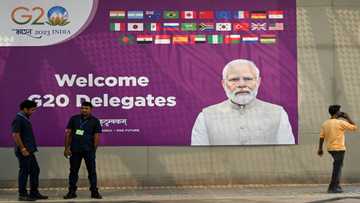Lady In Singapore Recounts How Their Country "Uses" Ghana, Nigeria And Other Countries To Survive
- A woman in Singapore has shared some details on how the country makes money even though they have no natural resources
- One of the major ways is the sale of cars used for 10 years in Singapore to Ghana, Nigeria, and other developing countries
- Another is to buy unrefined resources such as oil and water from Nigeria and Malaysia, respectively, refine and resell them at higher prices
PAY ATTENTION: Be the first to follow YEN.com.gh on Threads! Click here!
A Singaporean tour guide has revealed how they recycle cars in their country and sell them to Ghana, Nigeria, and other third-world countries.
She was telling some tourists on a bus about what has caused Singapore to develop, and some of their main forex sources.
In a video shared by @sikaofficial1, the Singaporean lady said as a country, they do not have natural resources, but their main source of income is oil.

Source: UGC
"One of our main resources is oil. We are the largest oil refinery in the world. So we buy oil from Nigeria, and we refine them and we sell it back to Nigeria. We have no natural resources whatsoever."
PAY ATTENTION: Click “See First” under the “Following” tab to see YEN.com.gh News on your News Feed!
"We buy crude water from Malaysia, we desalinate them, we purify it, and we sell it back to Malaysia," she added.
When the tourists on the bus expressed what seemed to be displeasure, the guide explained that since they did not have any natural resources, they needed to find a way to make money.
Used cars sold to Ghana
The Singaporean tour guide added that another way they make money is to sell their 10-year-old cars to countries like Ghana and Nigeria.
"All our cars have a life span of 10 years. After that, we either scrap it or resell it. We resell it to countries like Indonesia, Ghana, Nigeria, and others. They modify it and sell it at super expensive rates."
The modification is to change the steering wheel from right to left and then export them to developing countries like Ghana.
Ghana banned the importation of cars older than ten years in May 2020 to attract foreign corporations such as Volkswagen AG and Nissan Motor Co. to establish local operations in the country. The ban was to take effect on November 1, 2020.
However, the government suspended the ban even before it took effect.
Watch the video below:
Comments on the post
YEN.com.gh collated some of the comments by netizens. Read them below.
@sahabela said:
Human resources is always better than natural resources.
@Miezah66 wrote:
It's normal, life is a cycle
@rbakoto84 said:
When you have the best Human Resources who are not greedy and are patriotic, it is better than any Natural Resource.
@papayawpaapy wrote:
Wisdom is really far from African leaders. Their wisdom are for their pockets. Sad to watch as African
@wastyr said:
It’s not about what they don’t have (natural resources in this case). It’s their skills & knowledge of refining oil and purifying water. Yes, we have the raw materials & we always talked of it in debates, but raw materials don’t have a price like a finished products…
@JustGhanaian wrote:
Sensible leadership is the best natural resource. Its more valuable than gold. Africa lacks it.
Used cars without certificate of conformance banned
Meanwhile, the Ghana Standards Authority (GSA) announced a ban on used vehicles imported into the country without a Certificate of Conformance effective January 1, 2023.
A Certificate of Conformance demonstrates how well used vehicles entering Ghana fulfil GSA regulations.
According to the GSA, a valid certificate must comply with its standards for used vehicles or the "GS 4510:2022 Road vehicles" standard.
Ghana bans importation of second-hand electrical appliances
The country has also issued a ban on the importation of substandard and second-hand electrical gadgets. The regulation came into force on November 2, 2022.
In a statement, the Ghana Energy Commission outlined reasons for enforcing a ban on 19 substandard electrical appliances and renewable energy products.
According to the Commission, the prohibition is required since Ghana has become a popular destination for importing subpar and energy-guzzling televisions, refrigerators, washing machines, rice cookers, and air conditioners.
New feature: Сheck out news that is picked for YOU ➡️ click on “Recommended for you” and enjoy!
Source: YEN.com.gh




